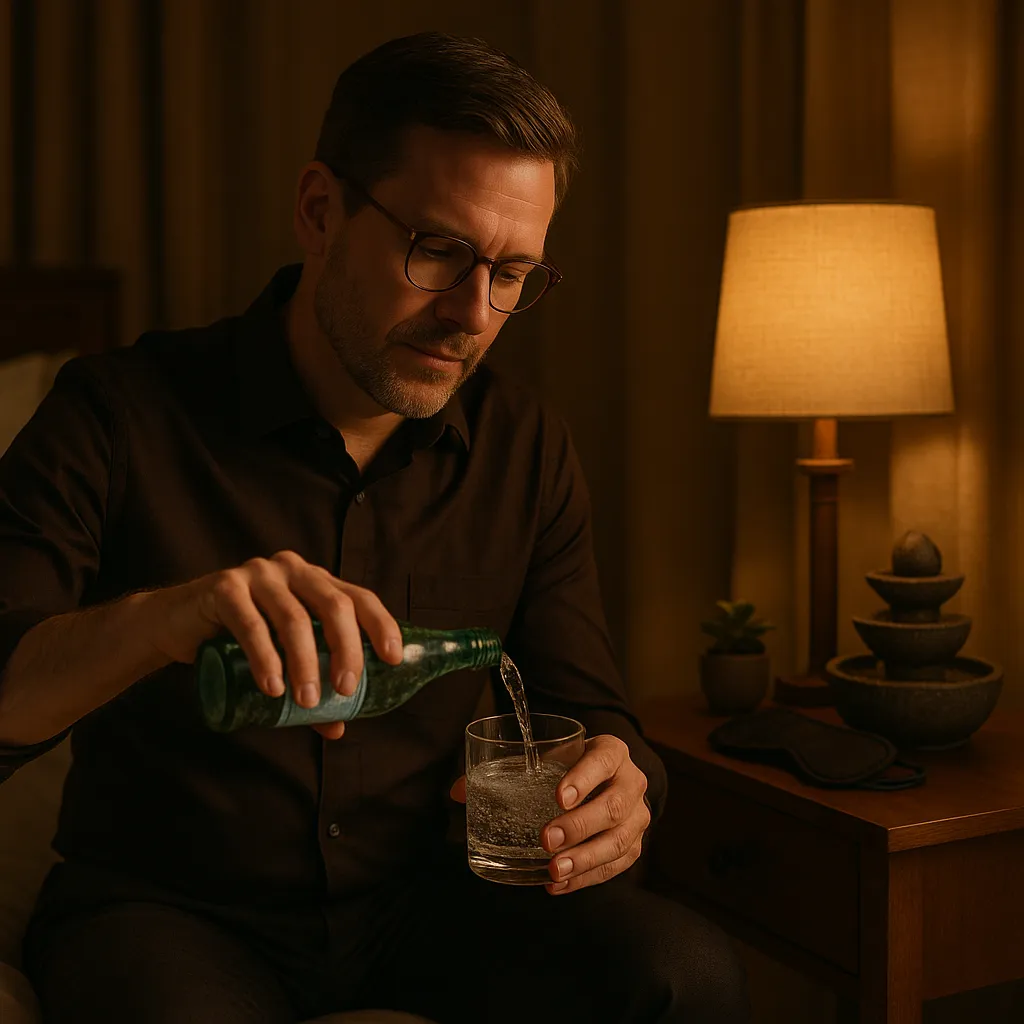
Comfort or Clarity? The Real Cost of the Quiet Pour
Comfort or Clarity? The Real Cost of the Quiet Pour
We don’t talk about it much.
Not in leadership circles. Not in entrepreneur masterminds.
Not at investor dinners or client cocktails.
But many high-functioning, high-achieving professionals — me too until 4.5 years ago — have a quiet relationship with alcohol. It’s not scandalous. It’s not destructive. It’s not even particularly visible.
It’s just there.
A glass before a pitch. A pour after a deal.
A drink before walking into the room to “be on.”
And here’s what I’ve learned from my own experience — and the stories clients eventually share:
That drink? It’s not always about relaxing. Sometimes, it’s about enduring. Sometimes it's about covering up.
When I was running a successful theatre company — producing, fundraising, liaising with donors, hosting opening nights — I had a ritual.
Most evenings, I’d have a drink before heading to the theatre.
Not because I was reckless. Not because I was collapsing.
But because it made me feel “on.” Presentable. Performative. Prepared.
What I didn’t realize at the time is that the drink wasn’t just smoothing social anxiety.
It was buffering the truth:
I had outgrown the role — even if I still believed in the mission.
That quiet pour was helping me stay comfortable… in a version of my leadership I was no longer aligned with.
We associate problematic drinking with chaos, loss, or lack of control.
But what about the kind of drinking that maintains control?
The glass that helps you tolerate another exhausting networking event…
The drink that lets you fake confidence in rooms where you feel disconnected…
The ritual that keeps you from asking the deeper question: Do I even want to be doing this anymore?
That’s the kind of alcohol use we’re not talking about — but should.
Because while it may not be “a problem,” it may be a pattern.
One that’s keeping you performing a version of your life that no longer excites you.
Let’s get pragmatic for a moment. Because even if you’re not ready to go deep (yet), there are some undeniable facts:
· REM Sleep drops by up to 40% with just 1–2 drinks. That’s your brain’s high-performance recovery mode.
· Cognitive clarity dips for 24+ hours, subtly impacting decision-making.
· Emotional suppression increases, which means you might not even realize how stuck, bored, or out of alignment you actually feel.
Alcohol doesn’t just affect your body.
It can fog your instincts — the ones that might be quietly nudging you toward a new chapter.
You don’t need to quit cold turkey or declare yourself “sober” to get clarity.
These small shifts can offer insight without extremism:
1. The Invisible Swap – Sparkling water with lime or a bitters + soda. Looks like a cocktail, feels like control.
2. The Hard Stop – No drinks after 8 p.m. if your next morning matters.
3. The ROI Check – After a drink or event, ask: “Was the trade worth it?” Not just physically — emotionally.
Sometimes the answer is a break from drinking.
Sometimes it’s therapy.
Sometimes it’s a coach who can help you explore what’s next.
The point is: you don’t have to go it alone.
When I stepped back from drinking, I didn’t just get better sleep.
I got the uncomfortable clarity that I no longer loved the work I was doing — at least not in the same way.
I had outgrown a version of myself that everyone else still saw as successful.
And that’s when I knew I needed a space to think clearly about what was next — and coaching became that space for me.
Coaching didn’t tell me what to do next.
It gave me the courage and structure to follow what I already knew.
For high-achieving leaders and entrepreneurs who don’t feel like alcohol is ruining their life — but can see it’s quietly shaping it — coaching can be a powerful way to explore what’s underneath.
Alcohol isn’t inherently the problem.
But sometimes it’s the placeholder for a truth we’re not ready to name.
If the drink is helping you stay comfortable in a version of your leadership you’ve already outgrown…
Consider that your clarity might begin the moment you stop needing it.
If you’re navigating addiction, seek professional support. Coaching is not a substitute for recovery programs like AA — it’s for leaders who want to explore the role alcohol plays in their alignment and performance.
